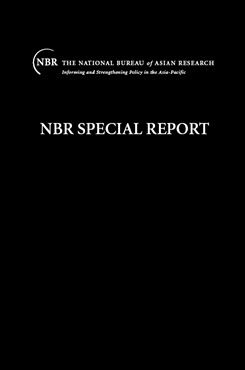The Korean Nuclear Crisis
An Opportunity for Enhanced U.S.-Japan Cooperation?
As a new, untested leadership team takes hold in South Korea (the Republic of Korea—ROK) and as the United States remains focused on the war on terrorism and its campaign against Iraq, North Korea (the Democratic People’s Republic of Korea—DPRK) has created a crisis which may test the fabric, if not the foundation, of the U.S.-ROK alliance and the hitherto close cooperation among Washington, Seoul, and Tokyo (through the Trilateral Coordination and Oversight Group or TCOG process). This article reviews the handling of the crisis to date and suggests some approaches Washington, Seoul, and Tokyo should consider in dealing with an increasingly belligerent Pyongyang.
As a new, untested leadership team takes hold in South Korea (the Republic of Korea—ROK) and as the United States remains focused on the war on terrorism and its campaign against Iraq, North Korea (the Democratic People’s Republic of Korea—DPRK) has created a crisis which may test the fabric, if not the foundation, of the U.S.-ROK alliance and the hitherto close cooperation among Washington, Seoul, and Tokyo (through the Trilateral Coordination and Oversight Group or TCOG process).
North Korea’s motives and intentions are subject to debate. One point, however, is clear: a failure by Washington, Seoul, and Tokyo to speak with one voice in dealing with this challenge will make its satisfactory resolution extremely difficult, if not impossible. This article reviews the handling of the crisis to date and suggests some approaches Washington, Seoul, and Tokyo should consider in dealing with an increasingly belligerent Pyongyang.


